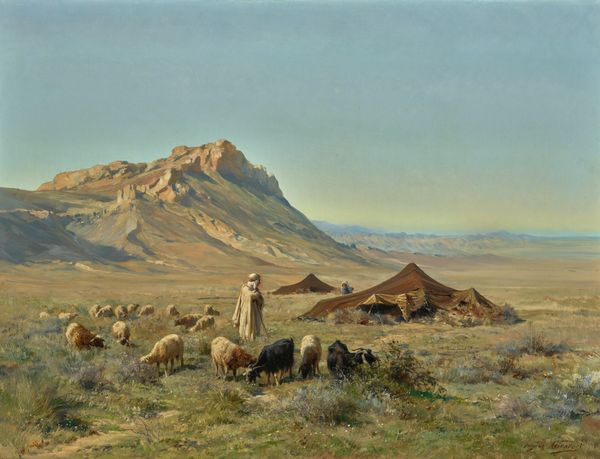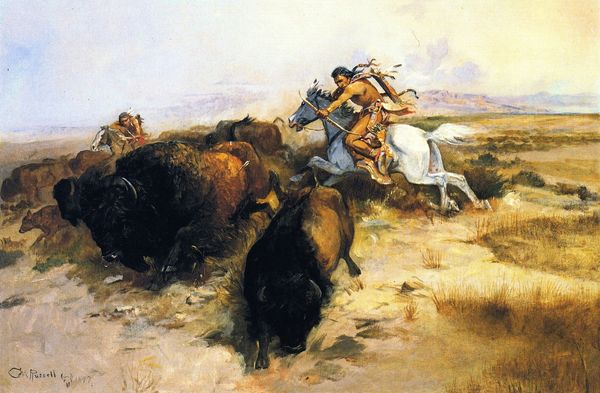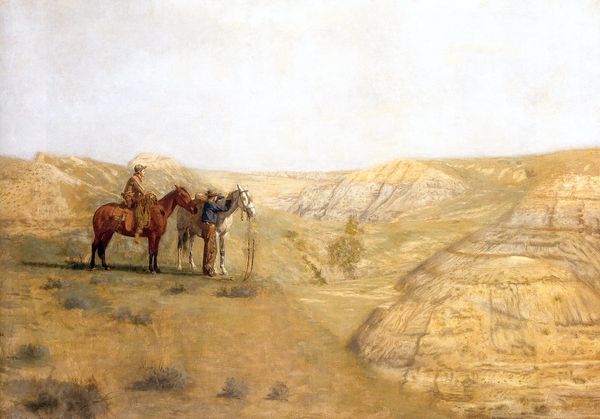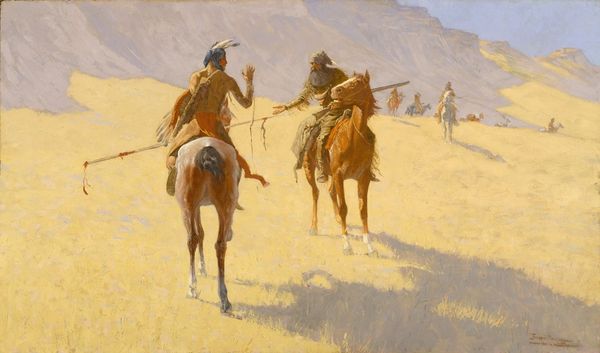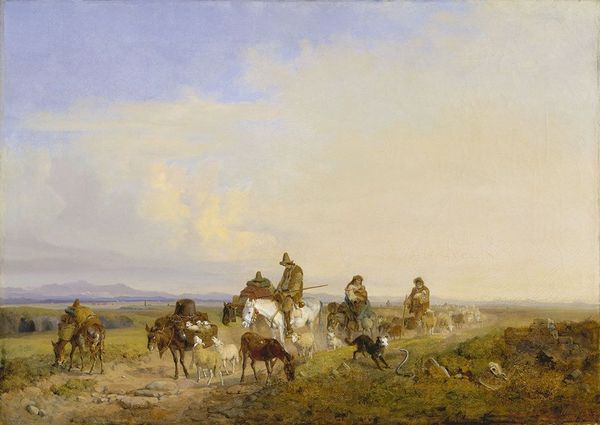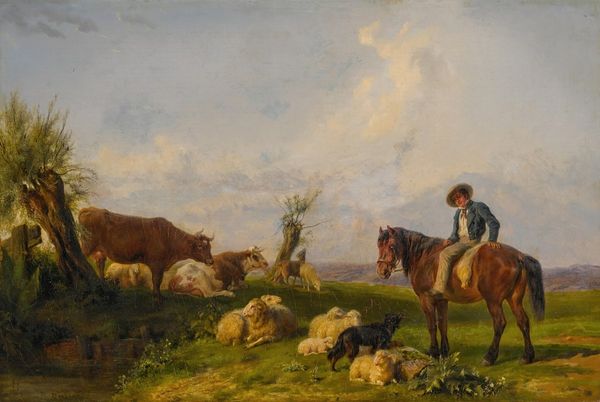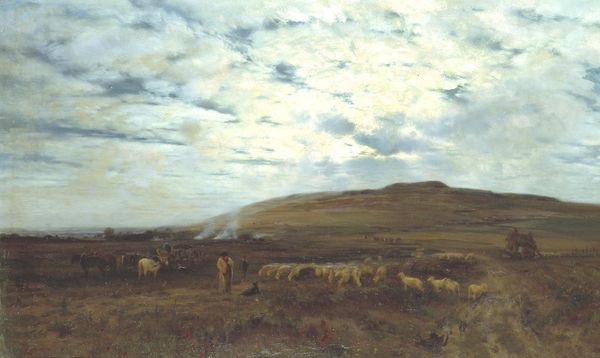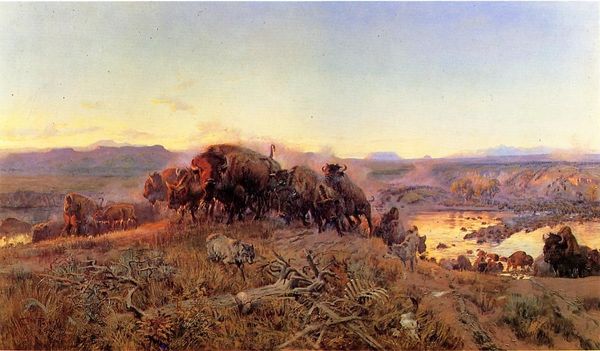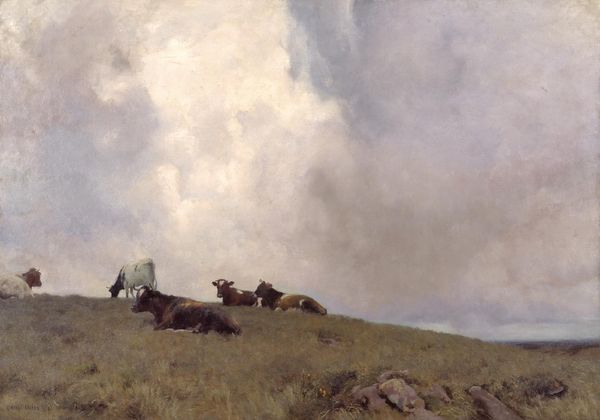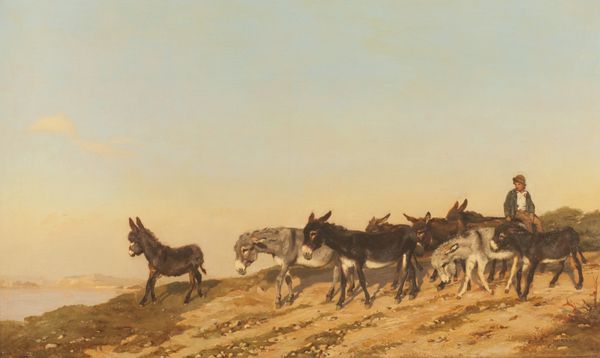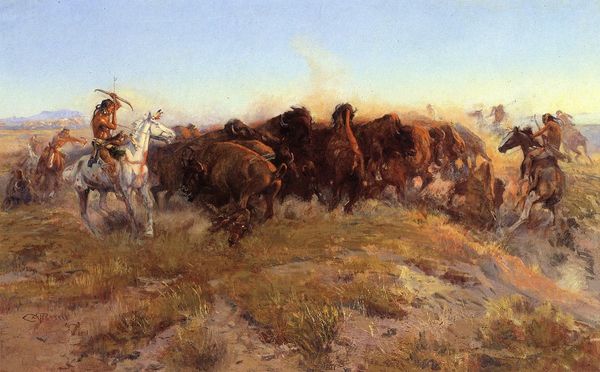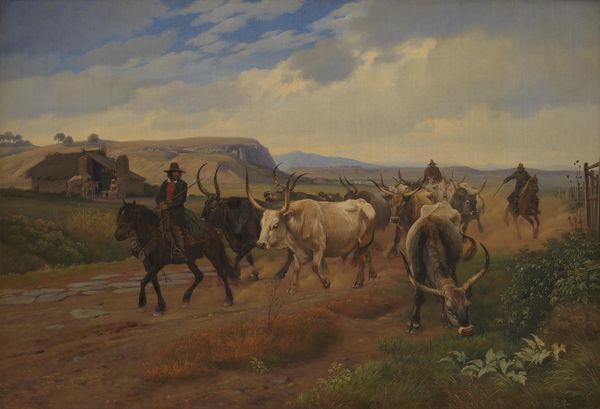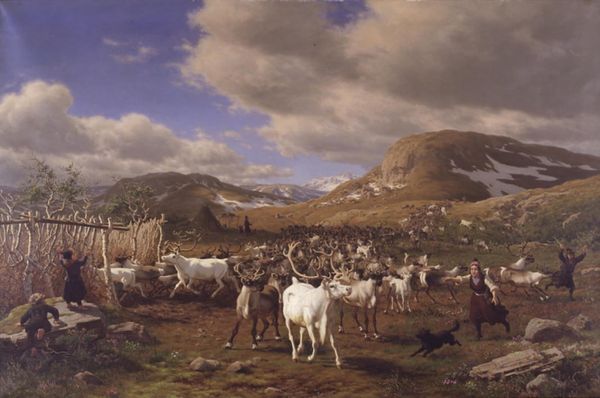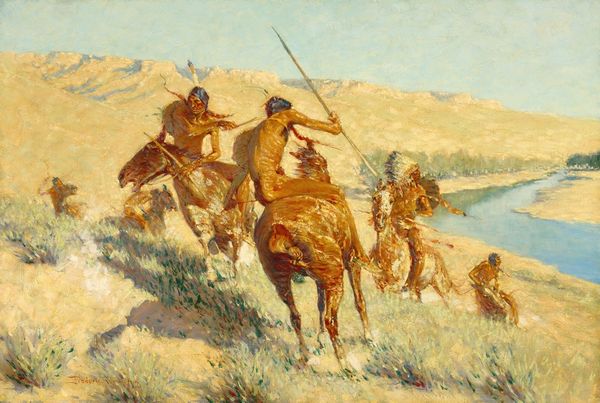
painting, oil-paint
#
figurative
#
painting
#
oil-paint
#
landscape
#
figuration
#
nature
#
oil painting
#
hudson-river-school
#
history-painting
#
realism
Copyright: Public Domain: Artvee
Editor: Albert Bierstadt's "The Wild West" presents a vast, sweeping landscape rendered in oil paint, featuring cowboys on horseback hunting buffalo. The scene has an element of both beauty and tragedy. What strikes me is how it seems to glorify this hunting practice, even though it clearly contributes to the decimation of these animals. What do you see in this piece from your perspective? Curator: It's impossible to view this painting outside the socio-political context of Manifest Destiny and westward expansion. The Hudson River School, to which Bierstadt belonged, often romanticized the American landscape, but that romanticism served a very specific purpose. It legitimized colonial projects by depicting the West as a limitless resource, implicitly encouraging settlement and exploitation, while obscuring Indigenous presence and perspectives. The depiction of the hunt isn't just about the thrill, it is directly connected with government policies of westward expansion, economic enterprise, and systemic violence that reshaped the continent, often sanctioned through artwork of this type. Do you think the vastness of the land is an innocent aspect of the piece, or does that vastness perform a role, too? Editor: I think that scale is intentional now that you mention it, contributing to that sense of limitlessness. I suppose the composition serves to justify expansion by suggesting an endless bounty free for the taking by those who dare. But it also feels tragic. Is it possible that Bierstadt might have had conflicting feelings? Curator: That is a very insightful question, and highlights the complexity inherent within these works. Some argue that the very act of documenting these landscapes suggests an awareness of their vulnerability, a fear of their impending disappearance through settlement. Perhaps Bierstadt wanted to capture a vanishing way of life even as he celebrated the triumph of settlers over nature, framing what we now see was a planned act of ecological damage, social control, and land repossession. Editor: That’s a really interesting point – the act of painting becoming a kind of complicated, perhaps even subconscious, act of documentation. Curator: Exactly. It pushes us to question what’s being framed and what is consciously – or unconsciously – omitted within cultural representations.
Comments
No comments
Be the first to comment and join the conversation on the ultimate creative platform.
